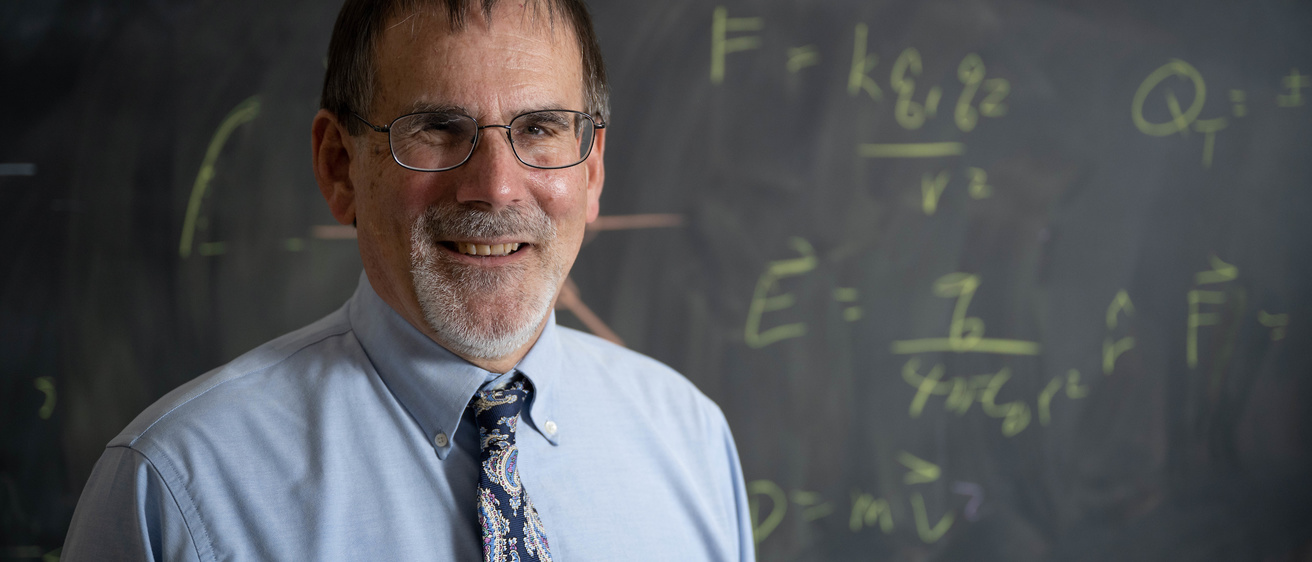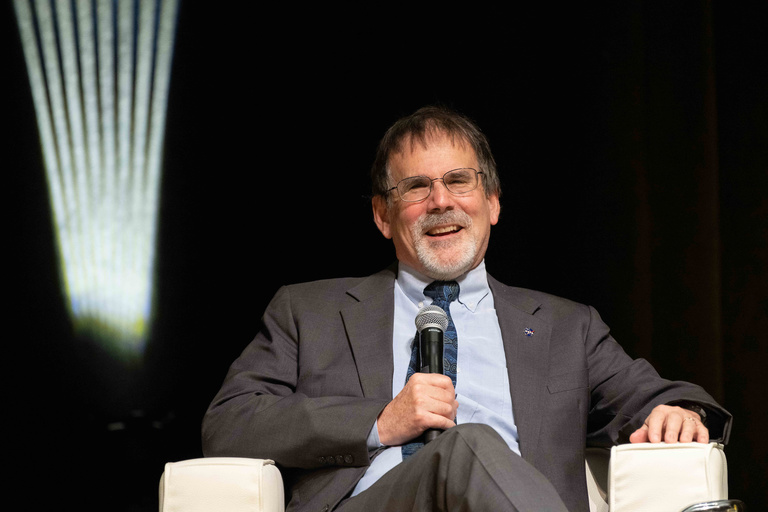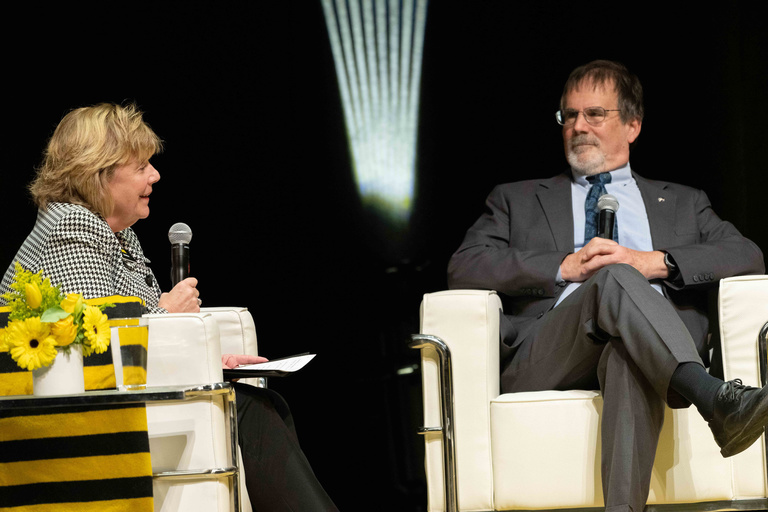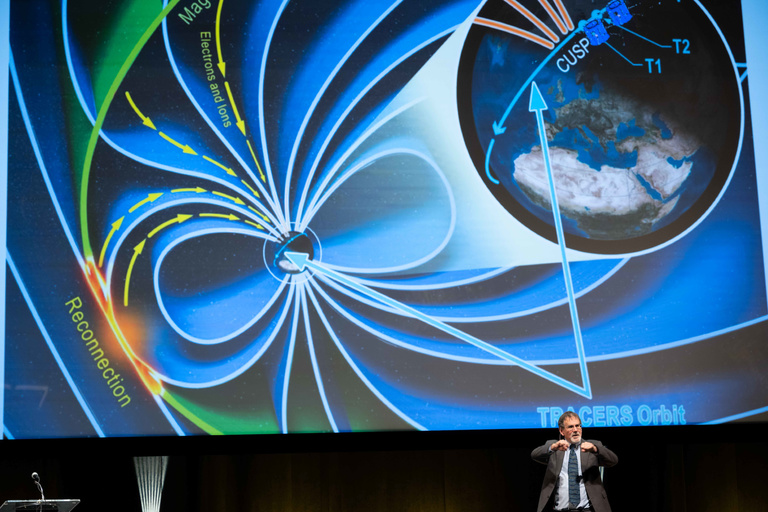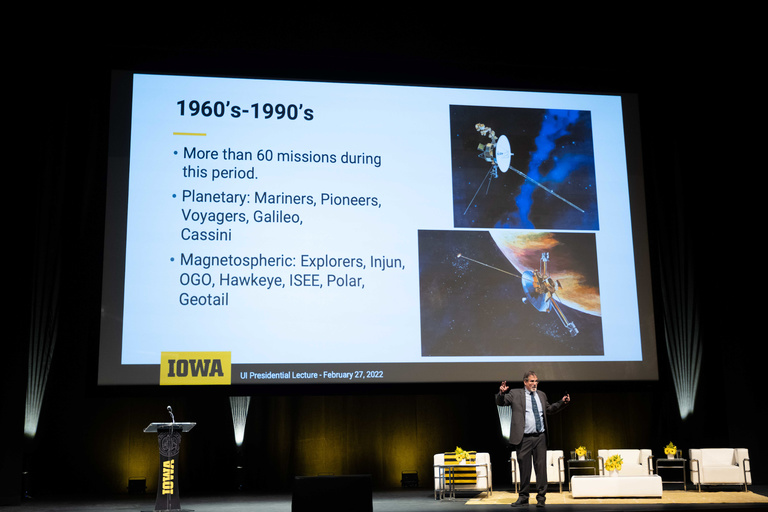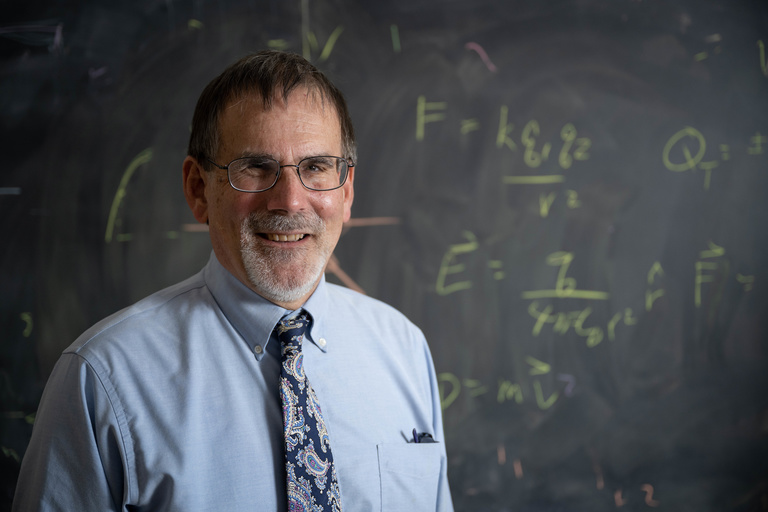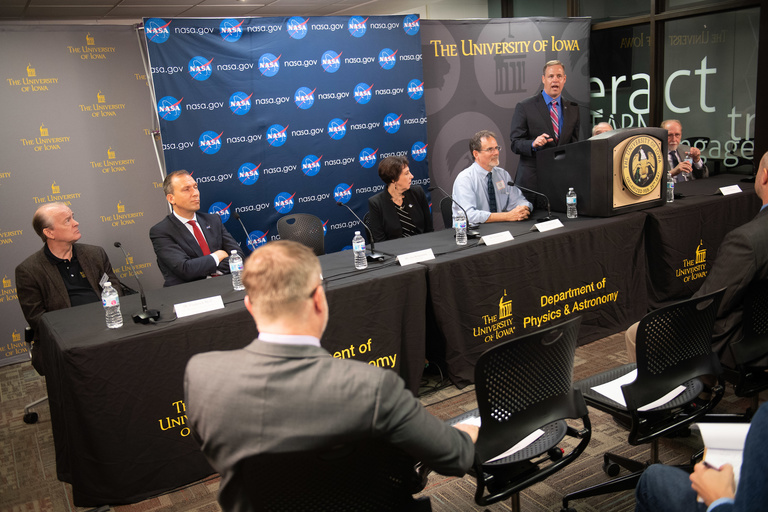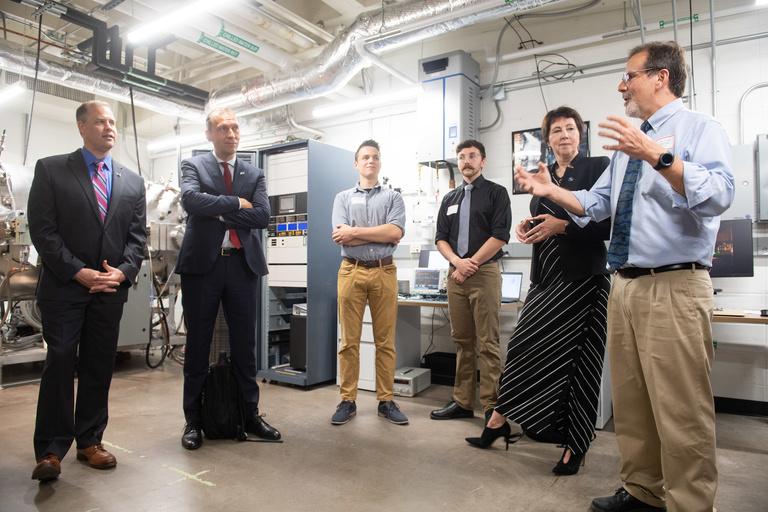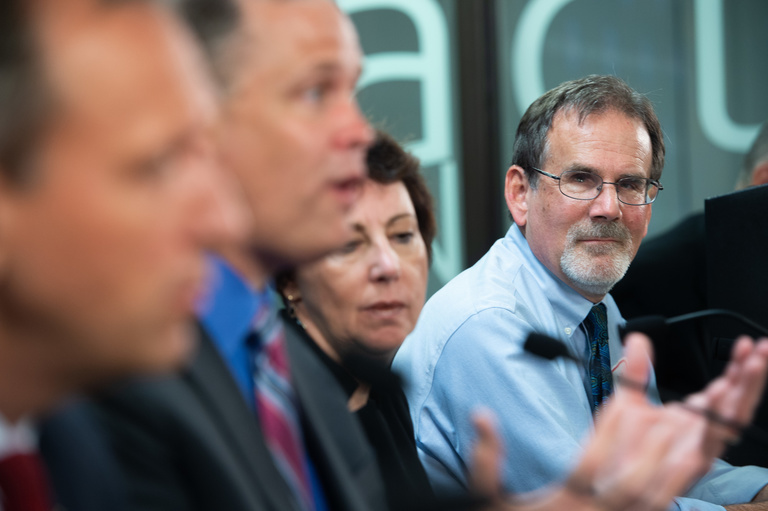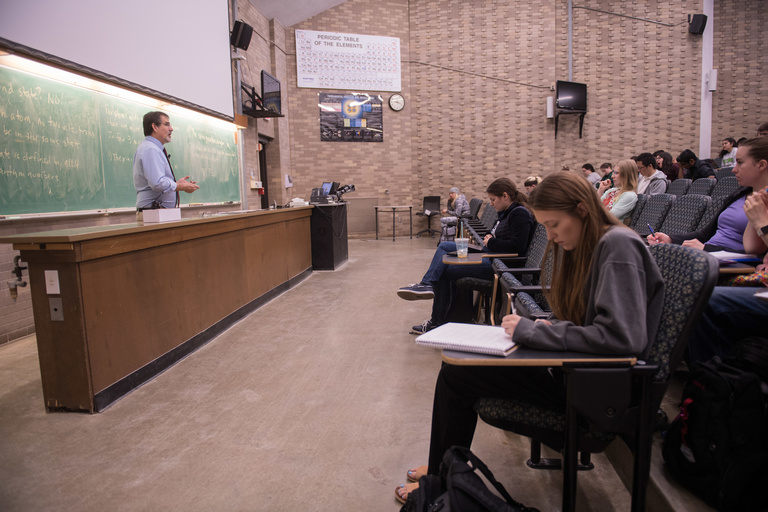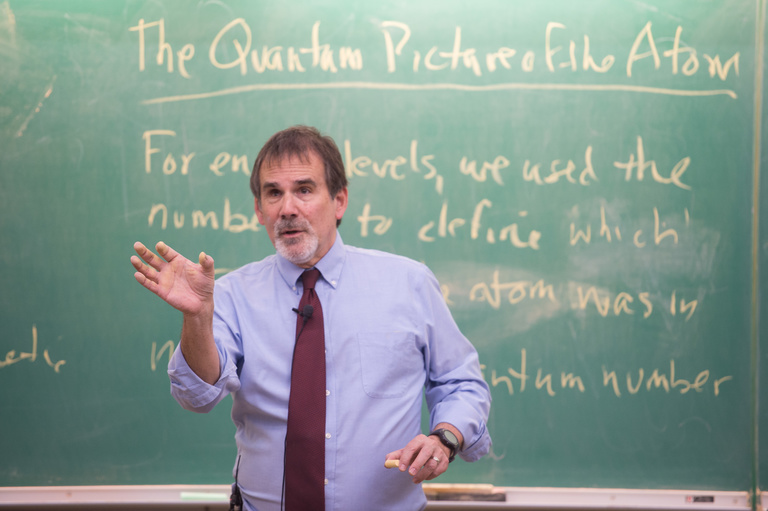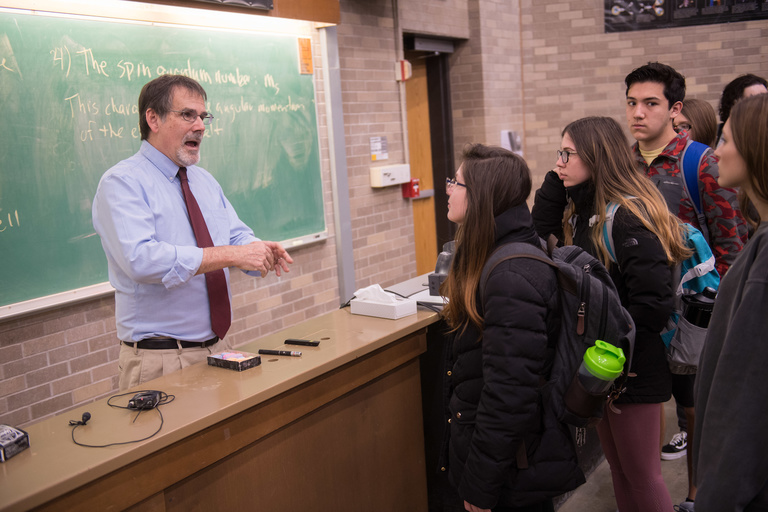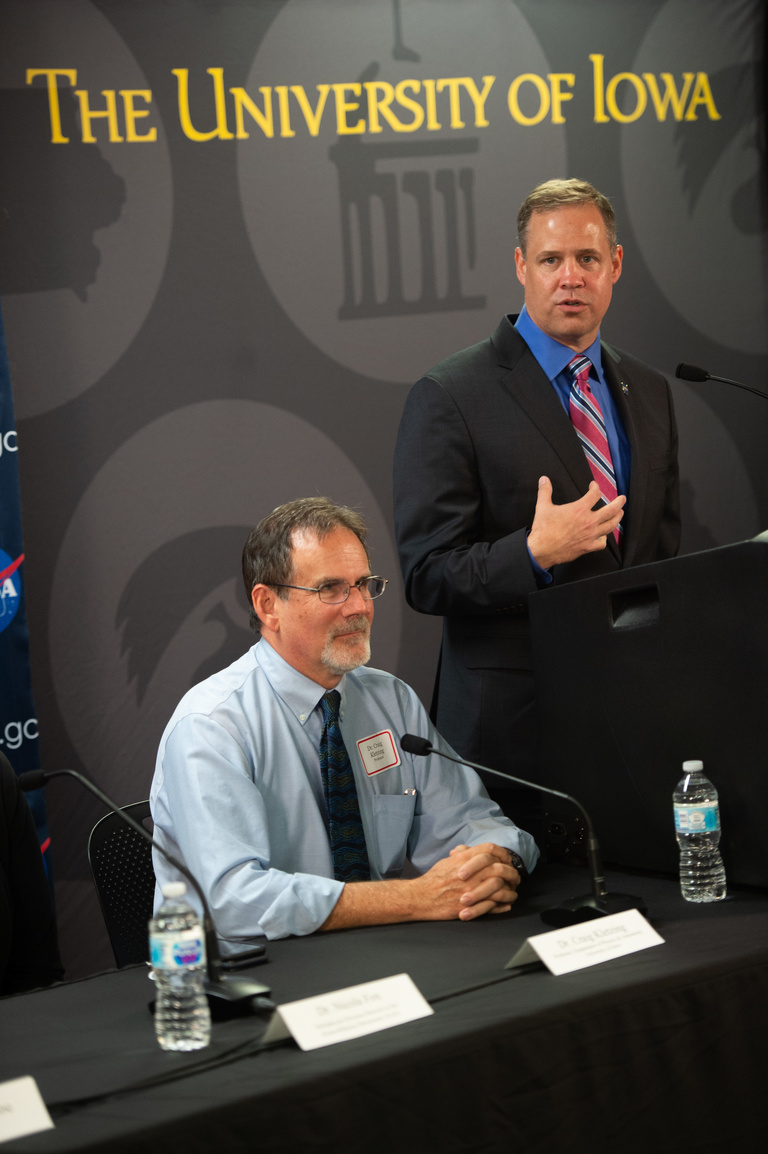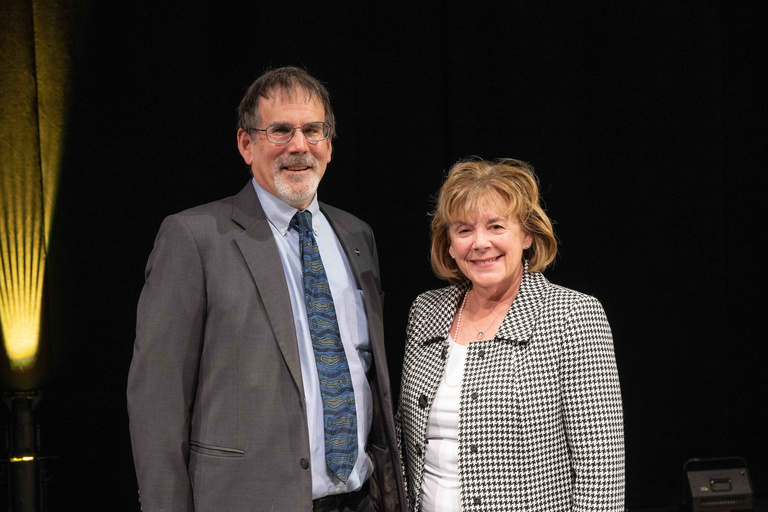Craig Kletzing, the easygoing, humble University of Iowa professor who combined a zeal for teaching with a decorated research career in space plasma experimental physics, died on Thursday, Aug. 10. He was 65.
Kletzing joined the Department of Physics and Astronomy in 1996. In nearly three decades at Iowa, he was directly involved in 30 near-Earth or space missions, the most prominent when he won a $115 million contract from NASA for the TRACERS mission to study the mysterious, powerful interactions between the magnetic fields of the sun and Earth. That award, announced in 2019, is the single largest externally funded research project in UI history.
for which he received the largest-ever grant in the university's history.
Yet, despite that research record, Kletzing was equally invested in sharing his knowledge with students.
“I always knew I wanted to be teaching in a physics department,” Kletzing said during an interview in 2019, recalling why he applied for a faculty position at Iowa. “I would’ve stayed as a research scientist if I didn’t like teaching so much. I like the mix of the two.”
During his career at Iowa, Kletzing taught 75 physics classes, from introductory courses for nonmajors, to demanding, upper-level classes for graduate students in the field. A rocket scientist with a flair for the dramatic, he was well known for his in-class demonstrations: One involved former UI President Bruce Harreld riding a rocket-powered tricycle; another explained Archimedes’ principle of buoyancy with a pail of water and a rock.
“I find teaching rewarding,” Kletzing said during the 2019 interview. “It’s explaining things that I think are interesting to other people and letting them see what some of the interesting parts are all about. There’s satisfaction when students who are struggling a bit suddenly get it. Plus, as I get older, I just like being around younger people. It’s the interest and passion that young folks have. I find that enlivening and a rewarding thing to be around.”
His commitment to teaching earned Kletzing numerous honors. He received a College of Liberal Arts and Sciences Teaching Award in 2006, a President and Provost Award for Teaching Excellence in 2007, and a Regent’s Award for Faculty Excellence in 2008. In 2019, he was named the inaugural holder of the Donald A. and Marie B. Gurnett Chair, given only to those viewed as essential in recruiting and retaining world-class faculty at Iowa. And in 2022, he was one of three faculty members to deliver the 39th Presidential Lecture.
“Craig has a special prominence, embodying the field of space physics in which we have built a legacy in exploration and discoveries, and who as a teacher wholly represents the spirit of creativity, innovation, and collaboration that exists at Iowa,” UI President Barbara Wilson said when introducing Kletzing in February 2022 at the 39th Annual Presidential Lecture, part of the university’s 175-year anniversary celebration.

Kletzing became intrigued with the physics surrounding auroras as an undergraduate at the University of California, Berkeley, at the time a hub of auroral physics. He earned master’s and doctoral degrees in physics at the University of California, San Diego, under the wing of Carl McIlwain, a professor and experimental physicist who studied under legendary UI physicist James Van Allen.
The author or co-author of more than 290 publications, Kletzing was especially interested in the relationship between auroras and Alfvén waves, a type of plasma wave that causes electrons to accelerate and crash into Earth’s atmosphere, creating auroras.
“It’s just some really interesting physics,” Kletzing said in the 2019 interview. “I mean, there’s the natural beauty of auroras, but to be frank, what really pulled me into it was the physics of what’s going on and how the auroral particles are created.”
At Iowa, Kletzing led NASA-funded missions that involved building and flying suborbital sounding rockets over active aurora and satellite missions to study the chaotic envelope where the Earth’s magnetosphere collides with space. Those forays are a direct continuation of the legacy of conducting experiments in space with instruments designed and built at UI that defined Van Allen’s career.
“I’m hardly the first person to do this, but that’s kind of why I was hired, to keep this field of research going,” Kletzing said in 2019, with typical humility. “So, I’m happy I’ve been able to do so. It’s not easy. It’s a competitive game.”
Kletzing’s career took a major leap forward with the NASA project called TRACERS (Tandem Reconnection and Cusp Electrodynamics Reconnaissance Satellites). As principal investigator, Kletzing orchestrated all aspects of the mission, leading scientists, engineers, and support staff at Iowa and managing the integral contributions by several participating institutions.
“This is a career milestone for me, personally,” he said in a 2019 story announcing the award. “It’s also a fantastic opportunity to do some really great science with an all-star team.”
His leadership with TRACERS, which is scheduled to launch in 2024, was just the latest in a long line of achievements in space physics. David Miles, associate professor of physics and astronomy at Iowa, will become the interim principal investigator for the mission.
More about Craig Kletzing
The late UI space plasma physicist Craig Kletzing appeared on a segment of Science Friday in 2012 to explain what causes eerie chirping noises recorded inside Earth’s radiation belts.
Read more about Kletzing and his career at Iowa here.
“Craig genuinely loved science and was excited by everything,” said Nicola Fox, associate administrator for the Science Mission Directorate at NASA, who knew Kletzing and worked with him on science missions since 1996. “His personal passion was the Earth’s cusps—areas where the energy from the solar wind enter into the Earth’s magnetosphere and drive activity. He was a world expert in fields and waves measurements, leading an instrument suite that flew on the Van Allen Probes mission, producing groundbreaking science results of the wave processes responsible for particle acceleration in the Earth’s radiation belts.”
Kletzing took great pride in what he called an “all-star team” at Iowa, namely several faculty members hired into the department over the past several years. One of them, Allison Jaynes, said Kletzing’s unbridled love for physics, his career, and the university were infectious.
“He's leaving the legacy of a multihyphenate professor: the educator, the mentor, the friend, the supportive faculty member, the scientist, the researcher, and the experimentalist,” Jaynes said. “He was equal parts all of those things, and that's hard to find.”
NASA’s Fox visited Kletzing in July 2022 during a stop to campus. She said his generosity with sharing his knowledge has inspired the next generation of scientists to succeed.
“If you walk around Van Allen Hall, you will find students of all levels taking part in his missions—each doing an outstanding job because they have been mentored by Craig,” Fox said. “I was once a more junior scientist, and Craig supported the first steps of my journey. There are so many successful people throughout the science community who would say exactly the same.”
True to form, Kletzing ended his Presidential Lecture in February 2022 talking not about himself but praising the accomplishments of recently hired faculty in the department.
“Most important to me is we’ve invested in these young faculty, and we have a great future coming,” he said to an appreciative audience. “In fact, I’m reminded of a line from a song when I was in graduate school: ‘Our future’s so bright, we gotta wear shades.’”
About music: Kletzing played electric and acoustic guitar in a Grateful Dead-inspired band, called Fork in the Road, that jammed throughout Iowa City. His wife, Jeanette Welch, is a professional musician and a bass teacher at the Preucil School of Music in Iowa City and at Kirkwood Community College.
“For both of us, the Iowa City area fit our careers nicely,” Kletzing said in a previous interview.
